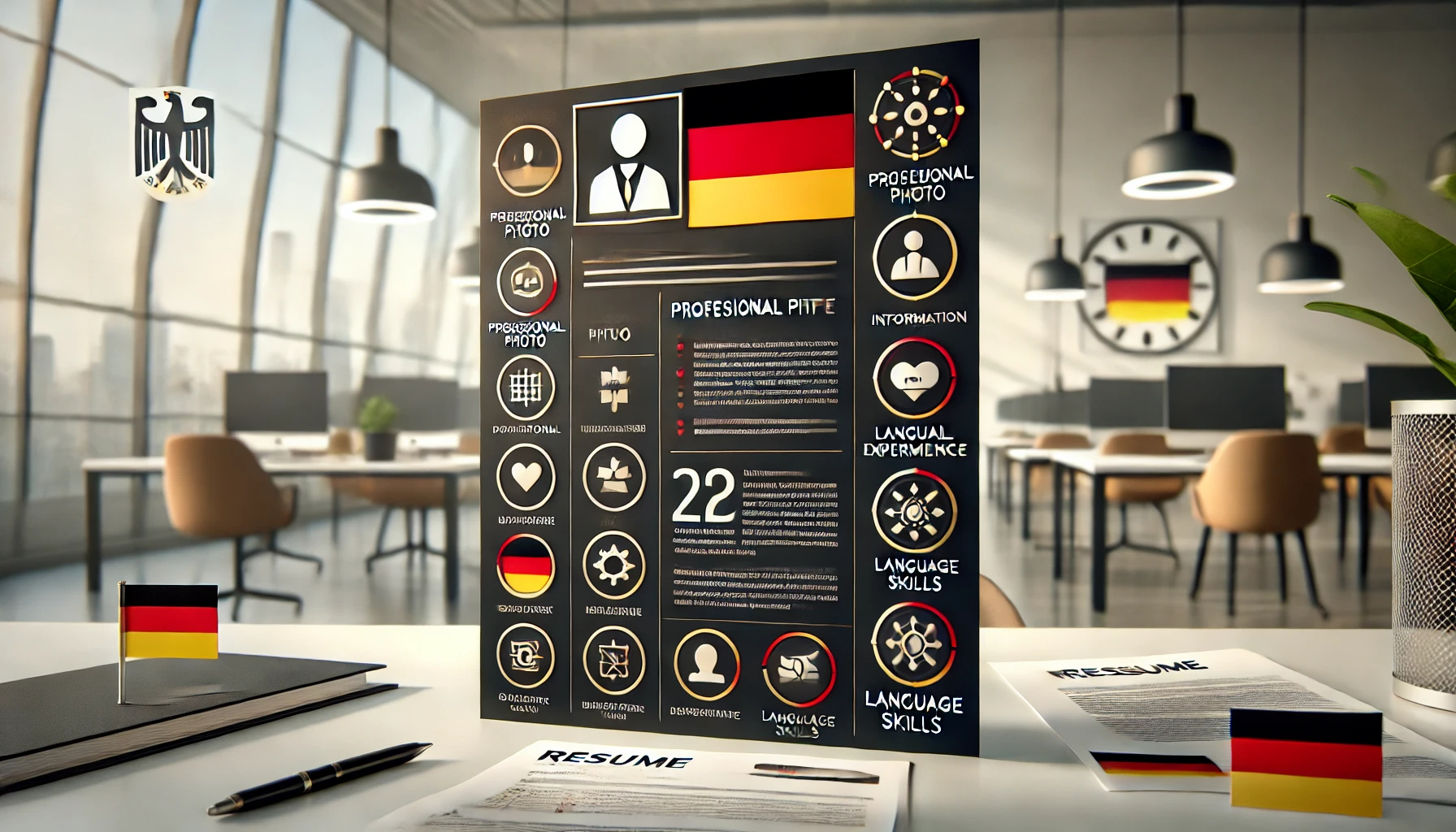10 Tips for Creating a Perfect Resume in Germany
Crafting a resume for the German job market requires attention to specific cultural norms and expectations. A German resume, or Lebenslauf, follows a clear structure and prioritizes precision and professionalism. Below are 10 essential tips for creating the perfect resume for Germany.
1. Use the European Standard Format
In Germany, a common format for resumes is the Europass CV. It’s widely recognized across Europe and is designed to present information in a clear, standardized manner. Using the Europass format helps ensure that your resume meets German recruiters' expectations. This format includes sections like personal details, work experience, education, skills, and languages.
2. Include a Professional Photo
In Germany, it is customary to include a professional-looking photo at the top of your resume. While this may be different from other countries where photos are discouraged, in Germany, a well-taken headshot can enhance your application. Ensure that the photo reflects a professional demeanor, with neutral backgrounds and formal attire.
3. Begin with Personal Information
Start your resume with personal information such as your full name, date of birth, nationality, and contact details (phone number, email address, and physical address). German employers value transparency, so providing this information upfront is standard practice. You can also include your marital status, though this is not mandatory.
4. Tailor Your Resume to the Job
One of the most important tips for creating a perfect resume is tailoring it to the job you're applying for. In Germany, it's common to adjust your resume for each specific application by highlighting relevant skills, qualifications, and experience that match the job description. Focus on achievements that are most relevant to the role.
5. Highlight Your Work Experience
German employers place a high value on work experience, so this section should be detailed and well-organized. List your work experience in reverse chronological order, starting with your most recent position. Include the company name, your job title, dates of employment, and a brief description of your responsibilities and accomplishments.
6. Provide Details on Education and Training
The education section is crucial in Germany, where academic qualifications are highly regarded. List your degrees, diplomas, or certifications in reverse chronological order. Be sure to include the name of the institution, the degree obtained, and the dates of attendance. If you have completed additional training or vocational courses relevant to the job, include those as well.
7. Include Language Skills
In an increasingly globalized world, language skills are an asset, and German employers appreciate candidates who can communicate in multiple languages. Indicate your level of proficiency using the Common European Framework of Reference for Languages (CEFR) scale (A1, A2, B1, B2, C1, C2). If you’re applying for a job that requires German language proficiency, be sure to specify your level in German.
8. Add Relevant Certifications and Skills
Highlight any certifications, licenses, or professional development courses that are relevant to the job. Include skills such as software proficiency, technical abilities, and other relevant qualifications. Be specific, and try to quantify your skills (e.g., “Advanced in Microsoft Excel,” “Fluent in Java Programming”).
9. Keep it Concise and Well-Formatted
German employers appreciate a clear and well-organized resume. Avoid lengthy narratives and focus on delivering the most relevant information in a concise format. Ideally, your resume should be no longer than two pages. Use bullet points to break up long sections of text, and ensure there is plenty of white space for a clean, easy-to-read layout.
10. Attach Relevant Documents
It’s common practice in Germany to attach important documents to your resume. These can include copies of your diploma, certificates, or references from previous employers. These documents are referred to as "Anlagen" and are essential for providing a comprehensive overview of your qualifications. Make sure the attached files are clearly labeled and neatly organized.
Bonus Tip: Use MyCVCreator.com for a Professional Resume
To make your job application even smoother, you can use platforms like MyCVCreator.com to create an ATS-friendly and professionally formatted resume. The platform offers customizable templates specifically tailored for different regions, including Germany. MyCVCreator helps you organize your information in a clear and concise way that is suitable for German employers, ensuring your resume is both professional and appealing.
Conclusion
Creating the perfect resume for the German job market involves more than just listing your work experience. By following these tips such as using the right format, including a professional photo, tailoring your resume to the job, and being concise you can increase your chances of landing your desired role in Germany. Using MyCVCreator.com will help ensure that your resume meets these high standards and impresses German employers.









